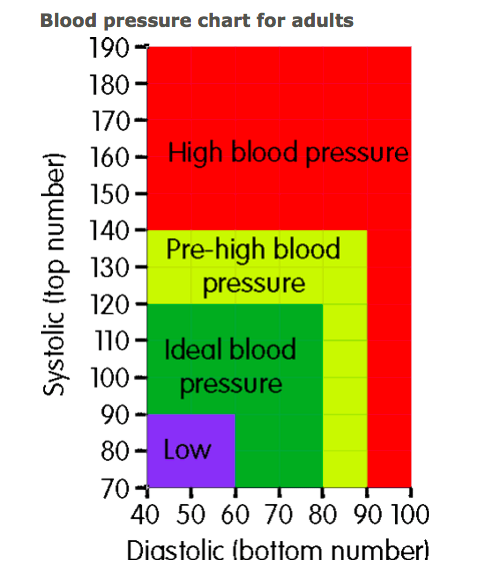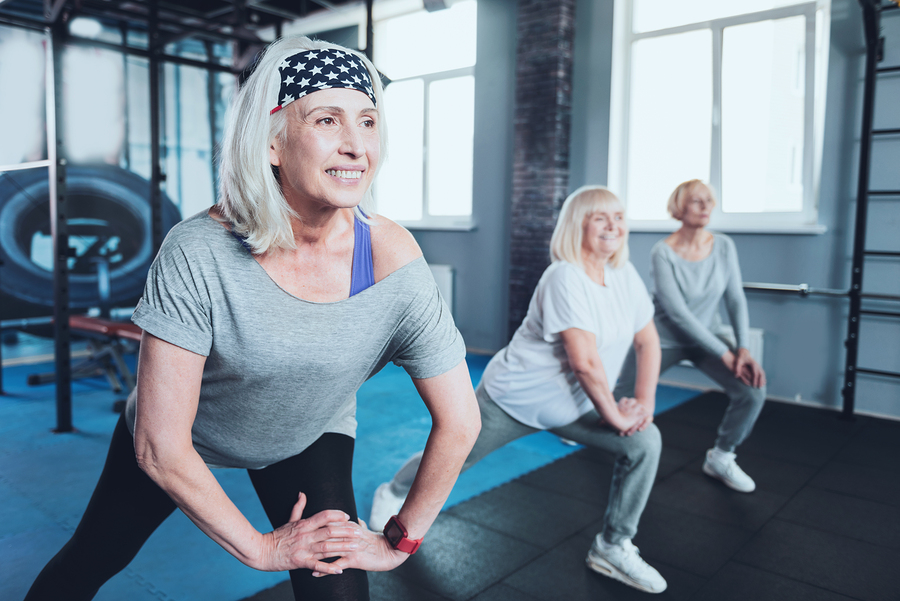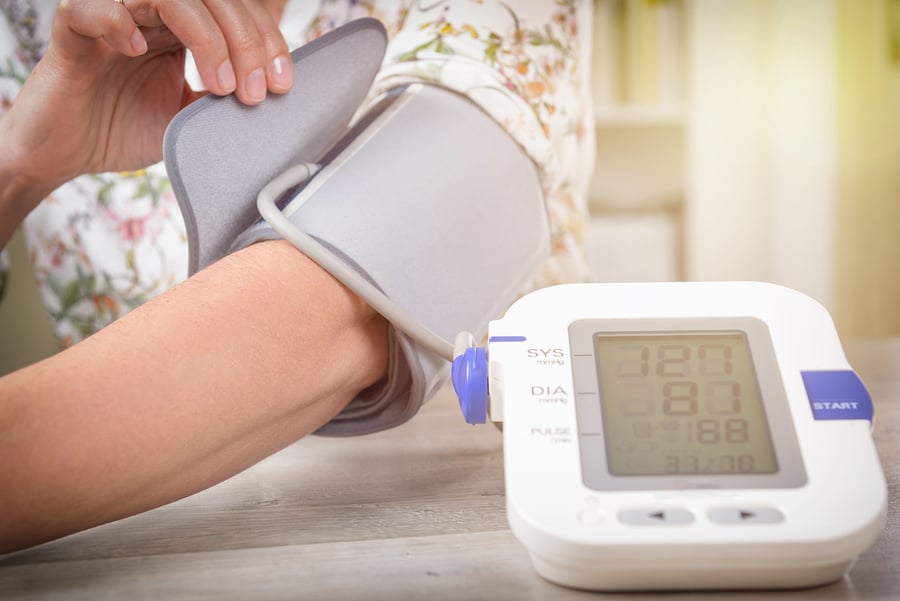Self-help tips on how to lower blood pressure naturally
It is estimated that over one in four adults in the UK suffers from high blood pressure and many more may be unaware they are affected as symptoms rarely show themselves.
High blood pressure, or hypertension, should be taken seriously as it can lead onto conditions such as heart attacks and strokes but happily for most of us it is very treatable by making simple lifestyle changes or through prescribed medication.
Get tested
The easiest way to find out your blood pressure reading is to have it measured. It is quick and easy to take a reading either at your GP surgery or at home using a blood pressure monitor. These are increasingly available at pharmacies or on online.
Blood pressure – key facts:
What is normal?
The ideal ‘text book’ blood pressure in a healthy adult is below 120 over 80 (120/80mmHg).
The majority of adults in the UK will show a reading of between 120/80 and 140/90.
Consistent readings of over 140/90 is considered high and steps should be taken to bring it down, although anyone with a reading above 120/80 would need to be careful it doesn’t go any higher and would benefit by reducing it too.
Low blood pressure would be a reading of 90/60 and is not usually considered a concern but if you are worried that your blood pressure is very low then it would be advisable to consult your GP.
Many short-term factors can affect a blood pressure reading, such as drinking coffee, exercise, smoking or anxiety so an unexpectedly high reading may not be anything to worry about. It is important to take a reading over a number of days and find the average. If this average is still high then you should make an appointment with your GP for advice.

Only one of my numbers is higher than normal – does this matter?
A blood pressure reading indicates two numbers, the top number shows your systolic blood pressure and the bottom number shows your diastolic blood pressure.
It is said we have either high or low blood pressure if only one number is higher or lower than it should be, regardless of the other number.
Can home monitoring be accurate?
Monitoring blood pressure at home can often be more accurate than having it measured at the GP surgery as whether we realise it or not, most of us feel anxious in a medical setting so our blood pressure reading will be higher than at home!
Another benefit of home monitoring is that it allows you to take readings at different times of the day and so you can easily see what may be affecting your blood pressure. You can also monitor your condition more easily, immediately seeing the benefits of any lifestyle changes you may make.
If you do monitor your blood pressure at home then make sure you follow these tips to ensure you get an accurate reading:
- Rest for 5 minutes before you take a reading
- Use the same arm that the surgery would use to measure your pressure
- Make sure you are sitting quietly, preferably with the arm resting on a table or desk
- Your feet should be flat on the floor and you should be sitting up straight
- Try not to take a reading in a cold room
- Take your blood pressure at different times during the day
Self-help tips to lower or maintain a healthy blood pressure
It’s your body so take control of your heart health! We have put together the following tips to help you make the right choices for your long-term health:
Less salt, more flavour
It has been proven that salt increases blood pressure so try avoiding salt altogether. Flavour can be added to food in lots of other ways such as using herbs, adding balsamic or rice vinegar to salads, introducing more spices or a splash of wine or drizzle of honey – be inventive!
It is surprising how many everyday foods contain salt so look out for it in your cereals and bread.
Read more on how little salt our body needs
Shed a few pounds
Losing just a few pounds can make a big difference to your blood pressure. Try grilling instead of frying, add fruit instead of sugar to your cereal, and swap that sugary drink for a glass of water. You’ll be surprised at how much better you’ll feel.
More potassium
Including potassium-rich foods into your diet such as bananas, tuna, white beans, dark leafy greens and potatoes with their skins will help to reduce your blood pressure by enabling your kidneys to get rid of excess fluid and sodium from your bloodstream.
Exercise

You can strengthen your heart and lower your blood pressure by exercising for at least 30 minutes, 5 times a week.
Walking, cycling, jogging, dancing or swimming are all great ways to exercise.
Check out our diet and exercise section for some fabulous ideas on healthy eating and how to become more active.
Relax
If you are anxious and stressed this can lead to spikes in your blood pressure. Try deep breathing, practicing mindfulness, or yoga.
Exercise and a good night’s sleep are also hugely beneficial in reducing stress.
Tips on how to improve your sleep
Less alcohol
It is best to limit your alcohol intake so sticking to the limit of up to 14 units for women and 21 units for men and having a couple of alcohol-free days a week can also reduce your health risks.
Quit smoking

Smoking clogs up arteries and reduces blood flow so this combined with high blood pressure makes a bad situation even worse!
The risk of heart disease drops dramatically just one year after stopping so it is never too late to quit.
See our article for more benefits of stopping smoking.
Get to know your blood pressure
Healthy adults over 40 should have their blood pressure checked at least once every 5 years. So don’t put it off – get yourself checked!
Disclaimer
All content on Silversurfers.com is provided for general information only, and should not be treated at all as a substitute for the medical advice of your own doctor or any other health care professional. Silversurfers will not be responsible or liable for any diagnosis made by a user based on the content on www.silversurfers.com and we are also not liable for the content of any external websites or links from or to Silversurfers to any other websites. Please always consult your own doctor if you’re in any way concerned about any aspect of your health
Melina - Assistant Editor
Latest posts by Melina - Assistant Editor (see all)
- By yourself at Christmas this year? Tips on how to manage alone - December 16, 2024
- The Silversurfers, just for fun, Christmas Quiz! - December 14, 2024
- 10 potential hazards for pets at Christmas - December 10, 2024
- Christmas Spiced Blueberry Panettones - December 1, 2024
- Three must have toys of the late 60’s - November 24, 2024




















